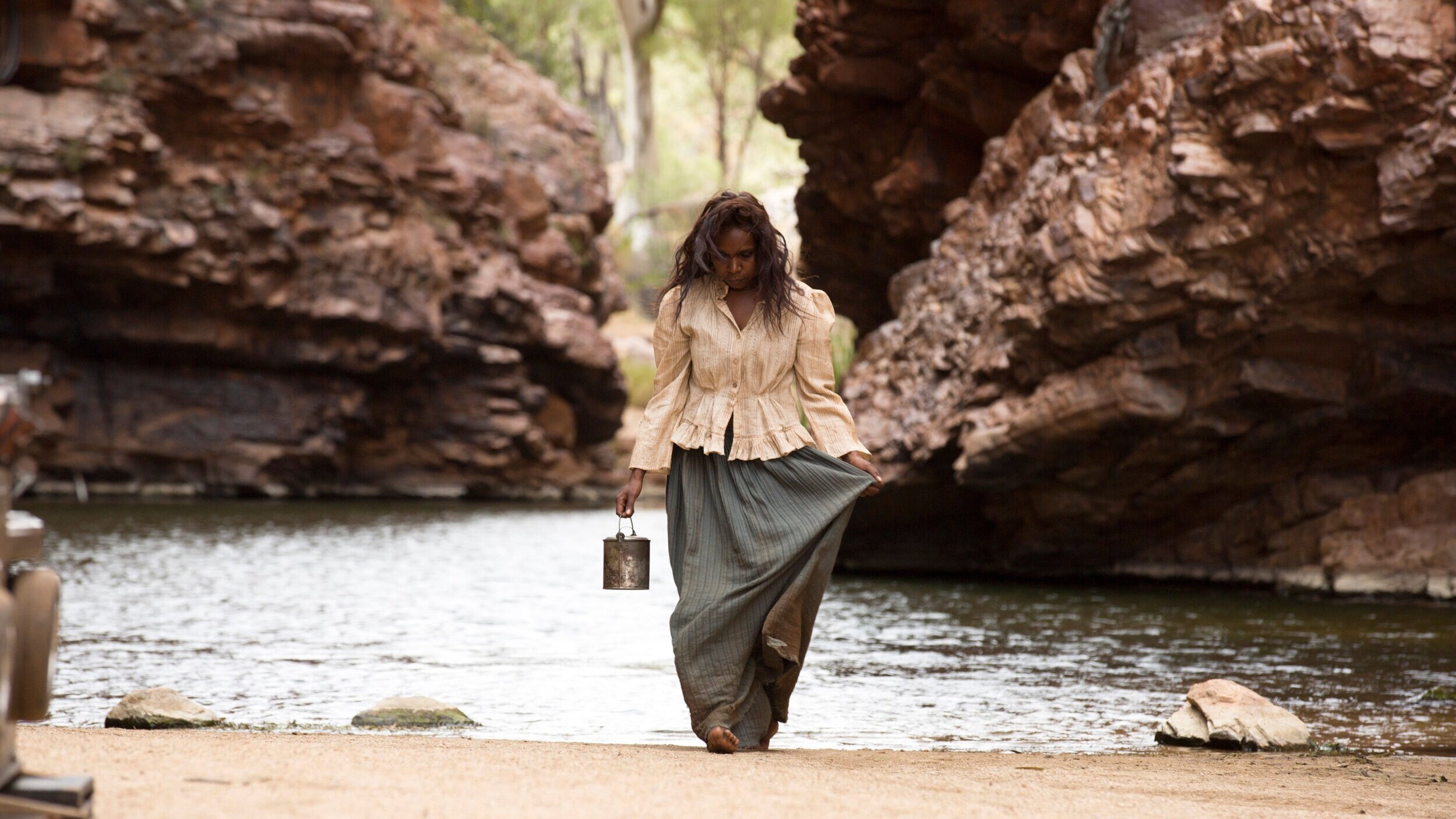Sweet Country
The 1920s in Australia is seen as a period of rampant racism at the expense of its native peoples.
Natassia Gorey Furber
Strong language in movies is close to being ubiquitous these days, but that doesn’t prevent its making an impact from the first moment onwards in the case of this new film from Warwick Thornton. Set in Australia’s Northern Territory in 1929, Sweet Country has been likened to a Western, but it is a tough movie as evidenced by that opening and by the violence in the story that ensues. It is also a film in which Thornton demonstrates his absolute command of cinema and that extends to his use of natural sounds (featured in preference to music) and to the splendid images. He photographs his own films as we saw in Samson and Delilah, that 2009 film about an Aboriginal couple which made his name (here he has his son Dylan River as the second unit photographer). The landscape around Alice Springs makes a great impact and there is even one scene that prompts thoughts of Omar Sharif’s arrival in David Lean’s Lawrence of Arabia (1962).
Sweet Country is a title echoed at one point when reference is made in the dialogue to cattle country, but in essence there is no doubt at all about it being ironical. That’s so because this is the story of Sam Kelly (Hamilton Morris), an Aboriginal land worker, and his fate shows all too clearly the racial intolerance of the period, a time when many white Australians regarded the Aborigines as no better than slave labour to be exploited. Sam and his wife, Lizzie (Natassia Gorey Furber), work for a devout Christian, Fred Smith (Sam Neill), who is kindly to them. However, he is unaware of the danger he is putting them in when he lends them to a neighbouring landowner, Harry March (Ewen Leslie), who asks for help for a couple of days. March, a former military man and a heavy drinker, treats his own Aborigine employee, Archie (Gibson John), barbarously and his brutal, threatening behaviour when armed will lead to Sam having to kill him in self-defence (and that is before he discovers that March has raped Lizzie). Fully aware that an Aborigine who has killed a white man is likely to be found guilty of murder regardless of the facts, Sam flees with Lizzie but a posse under Sergeant Fletcher (Bryan Brown) pursues them. Thus, even before the posse finds itself under attack from the country's indigenous people, we have ingredients that explain why Sweet Country has been described as an Australian Western.
In reality, though, this is a drama of racial prejudice with Fletcher determined to become Sam’s nemesis although Fred Smith joins the posse hoping to prevent that. An admirable cast bring conviction to this harsh tale, but Thornton’s decision to incorporate intercut images (some brief and others longer, some flashbacks and some looking ahead) seem self-consciously arty and is thus distracting if not on occasion downright confusing. But it doesn’t undermine the basic power of this film, which ends bleakly with the disenchanted question “What chance has this country got?” Over the end credits, Johnny Cash is heard and his song is ‘There’ll Be Peace In The Valley One Day For Me’. But, like the film’s title, this can only be regarded as ironic for the film leaves us without any real hope at all.
MANSEL STIMPSON
Cast: Hamilton Morris, Bryan Brown, Gibson John, Tremayne Doolan, Trevon Doolan, Natassia Gorey Furber, Sam Neill, Ewen Leslie, Matt Day, Thomas M. Wright, Anni Finsterer, Shanika Cole.
Dir Warwick Thornton, Pro David Jowsey and Greer Simpkin, Screenplay Steven McGregor and David Tranter, Ph Warwick Thornton and Dylan River, Pro Des Tony Cronin, Ed Nick Meyers, Costumes Heather Wallace.
Bunya Productions/Sweet Country Films-Thunderbird Releasing.
113 mins. Australia. 2017. Rel: 9 March 2018. Cert. 15.


